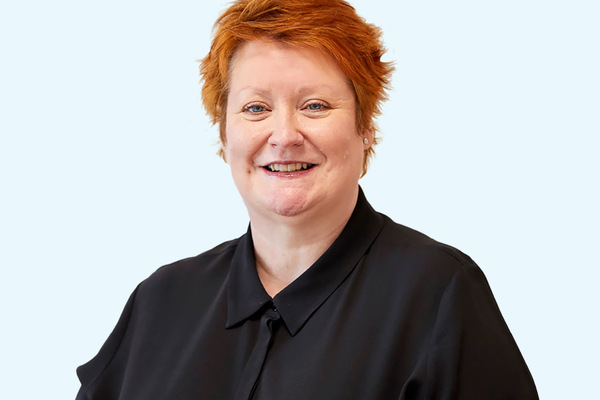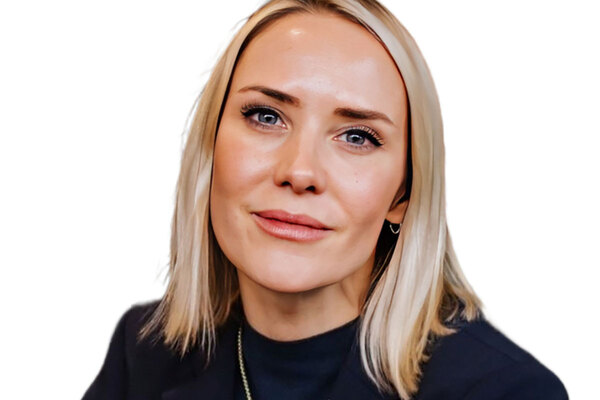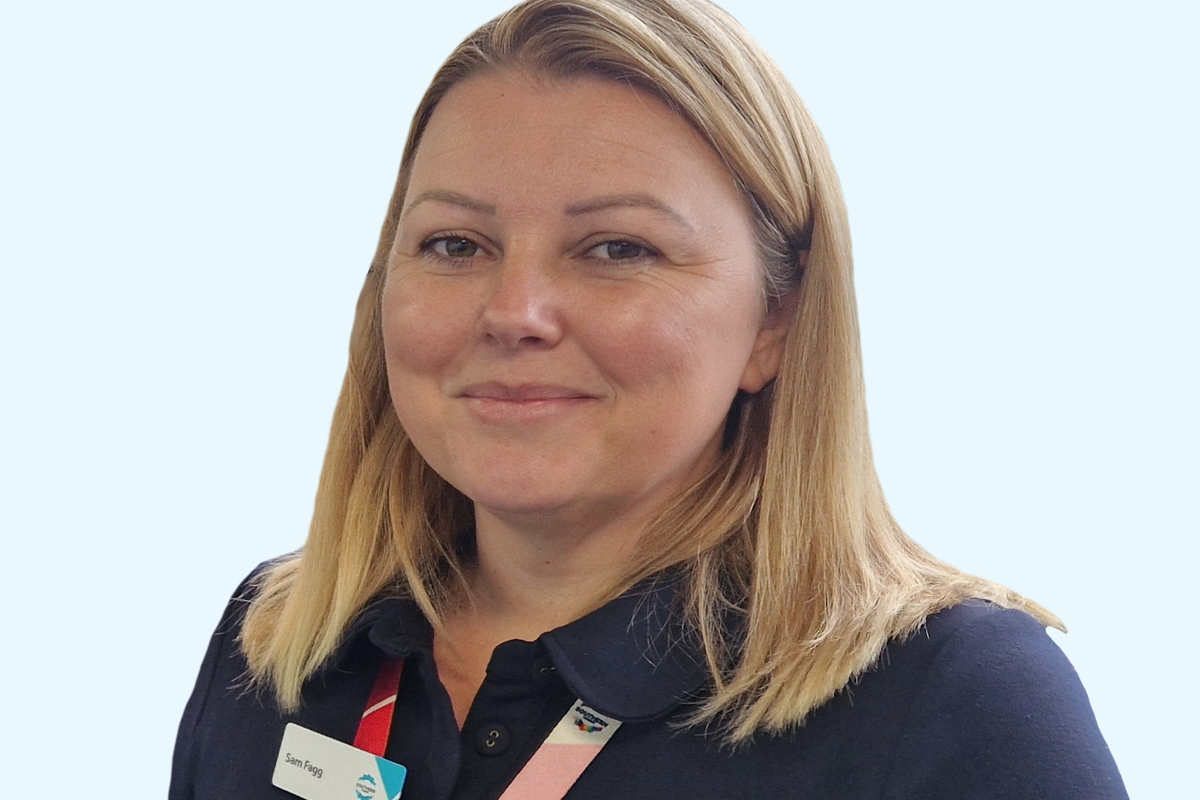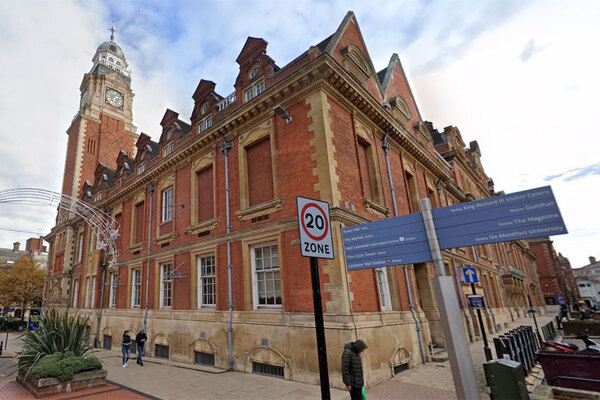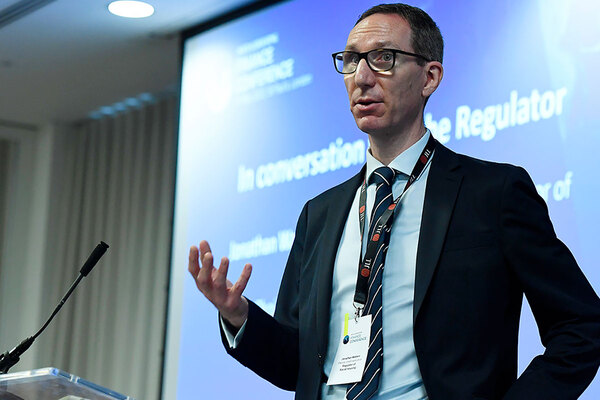
Sophie Atkinson is executive director of governance at GreenSquareAccord
How social landlords can move beyond rainbow logos
Social landlords have been criticised for ‘pinkwashing’ by changing their logos for Pride. Sophie Atkinson says these symbolic gestures still matter. But she has some ideas for what more landlords could do
It’s Pride Month and many social landlords have been displaying signs of support for the LGBTQ+ community by switching out their usual logos for rainbows.
My employer – GreenSquareAccord – is one of those organisations that has ditched its usual pink and teal for a more colourful variant. We chose the redesigned Pride flag as our basis, which includes black and brown stripes to represent people of colour, as well as the pink, blue and white of the trans flag.
What could possibly be objectionable about that? Well, quite a lot, if you follow the mutterings on social media. In some quarters, this is seen as a form of cynical brand promotion and there’s even a term to describe it – pinkwashing – the use of support for LGBTQ+ rights by an organisation to boost its own image. So why the resistance?
When I entered the world of work 25 years ago, I can’t recall any instances of companies updating their logos on an annual basis or displaying outward signs of support for the LGBTQ+ community. For me, it feels like an inclusive and supportive measure – recognition that everyone is different and valued equally. It’s something that organisations should do more of, and not just in Pride Month.
“I sometimes feel like Pride Month is an annual ‘coming out’ for many companies. They slap a rainbow on a logo, organise some events and then – at the end of the month – get back into the closet”
Perhaps the challenge comes when the same organisations that create carefully co-ordinated campaigns for Pride Month fail to back up their statements with meaningful action. In these circumstances, the celebratory communications and perky messages of inclusion can fall flat when they don’t echo the experience of colleagues and customers. So what steps can housing providers take to avoid this?
First, it’s important to recognise that Pride is for life, not just for June. I sometimes feel like Pride Month is an annual ‘coming out’ for many companies. They slap a rainbow on a logo, organise some events and then – at the end of the month – get back into the closet.
This is not an option for LGBTQ+ people. So, if you’ve declared yourself as an organisation that supports LGBTQ+ employees and customers, this needs to continue year round. It’s where the glitter and jazz hands should translate into hard graft.
Second, put your words into action using a simple framework of engage, measure and act.
The first thing is to engage. Engage with colleagues and customers to understand their experience of your organisation and use this to drive improvements in the workplace and in the delivery of services. Take action to break stereotypes and create empathy.
A simple way to do this is by encouraging the sharing of experiences so that people can understand and learn from each other. Personal stories are powerful – so use them.
It may sound trite but what gets measured really does get done – and we have a significant data challenge in the sector. This affects both employees and customers. A 2021 National Housing Federation survey revealed that, out of 174 organisations that took part, no data was recorded for 74% of employees on gender identity and 40% on sexual orientation. It also found that employees remain more likely to select ‘prefer not to say’ when asked about their sexual orientation than any other category.
“Not only do we need to be much better at data capture, we also need to work harder at earning the trust of colleagues and customers so that they feel more comfortable in disclosing this information”
A similar challenge was experienced by the Human City Initiative when analysing the diversity characteristics of social housing tenants. It concluded that between 4% and 6% of all social tenant household heads identified as LGBTQ+, but this was highlighted in the report as an estimate due to the number of tenants who did not respond to questions relating to sexual orientation.
This tells us that, not only do we need to be much better at data capture, we also need to work harder at earning the trust of colleagues and customers so that they feel more comfortable in disclosing this information. In particular it means being better at explaining how and why we use the data we collect to prevent discrimination in our business practices.
“You can show outward signs of support and allyship as long as you are honest about the journey you’re on and continue to take steps to improve”
Use the information you’ve gathered to start taking positive action to improve the experiences of colleagues and customers. Beginning the journey is what’s important and you will find individual organisations at different stages of maturity.
I have spoken to colleagues in other housing associations who have said that they did not participate in Pride Month because they felt they would be judged as hypocritical in making an outward show of support when they recognised that they still had much more work to do. I don’t think this matters – you can show outward signs of support and allyship as long as you are honest about the journey you’re on and continue to take steps to improve.
GreenSquareAccord is just over a year old and has developed some simple commitments that form the basis of our EDI Foundation Strategy. It’s aptly named as it’s designed to create a solid foundation which we can build on in the future.
We recognise that we have not yet reached the end of the rainbow but we’re committed to the journey – and will continue to use our rainbow logo along the way until we get there.
Sophie Atkinson is executive director of governance at GreenSquareAccord and identifies as the B in LGBTQ+
Sign up for our daily newsletter
Already have an account? Click here to manage your newsletters



